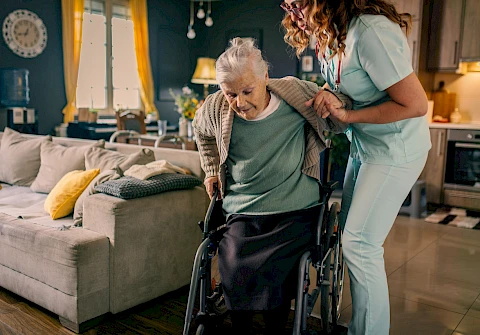
Senior care requirements often evolve with age. There may be a point when it can become challenging for family caregivers to provide adequate support. In this case, additional senior home care may be necessary to maintain their quality of life.
Recognizing the Need for Home Care
Paying attention to your senior loved one's day-to-day life can reveal significant indicators it’s time to sign up for additional home care. Physical health decline, such as frequent falls, bruises, or decreased energy, may signal a need for assistance. Changes like memory issues, increased confusion, or difficulty understanding instructions can indicate cognitive decline.
Your loved one may find daily activities like cooking, cleaning, bathing, or dressing more challenging. They may also suffer from increased isolation and loneliness, where they withdraw from social activities. These signs suggest it's time to consider home care to provide companionship and support.
Questions to Consider
When assessing your senior loved one's needs, asking the right questions can provide valuable insights. What tasks do they need assistance with? Do they require help with personal hygiene, meal preparation, or medication management? How frequently do they require assistance — daily, weekly, or only occasionally?
Consider if there are any medical conditions or specialized care requirements that need attention. Does the senior have Alzheimer's or diabetes, which might necessitate specialized services? How do they feel about the potential care arrangements? What are their preferences for the type of support they receive? Remember to consider their comfort and preferences when making a decision.
Selecting a Home Care Provider
Choosing the right home care provider is a big decision. Start by researching potential providers, checking credentials, and reading reviews of home care agencies. Understand the range of services they offer. When considering providers, ask about the caregiver-to-client ratio. This can affect the quality of care and attention your loved one receives.
Inquire about the training caregivers receive to ensure they are qualified to address your loved one's needs. Ask about their process for matching caregivers with seniors to ensure a good fit. Remember to check their emergency protocol to ensure your loved one's safety.
Red Flags to Watch Out
When selecting an in-home care provider, be on the lookout for the following red flags:
- Unlicensed or Uninsured Providers: Unlicensed or uninsured caregivers may not meet industry standards, putting your loved one at risk.
- Lack of References: A lack of references can indicate a lack of credibility or experience.
- Negative Online Reviews: Consistent negative feedback may signal issues with the provider's quality of care or reliability.
- Lack of Training: Inadequate training can affect the quality of care and safety for your loved one.
- Inconsistencies in Staffing: Avoid agencies that frequently change caregivers, as this can disrupt your loved one's routine and care.
Being aware of these red flags will ensure you make an informed decision.
Does Your Loved One Need More Support at Home?
Proactively assessing and addressing senior care needs ensures your loved one receives the appropriate support in their golden years. If you’re considering getting in-home support for a senior loved one, trust Senior Helpers Chicago/Evanston. We provide exceptional senior care solutions in Chicago and Cook County, IL, including assistance with daily living tasks, personal hygiene, diet monitoring, and other aspects of elderly care. Contact us today to explore your options!